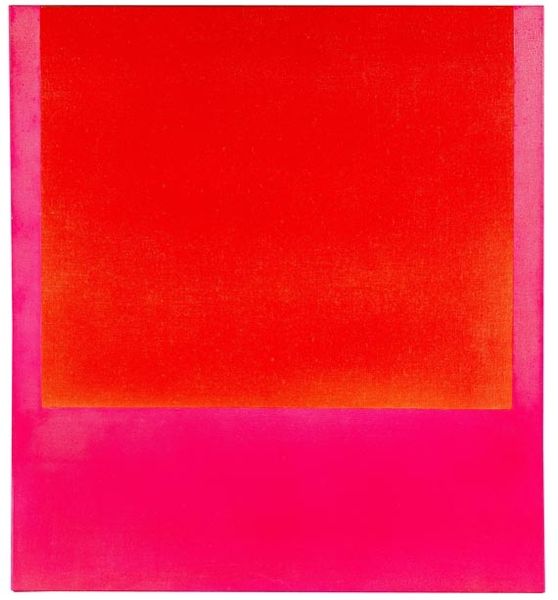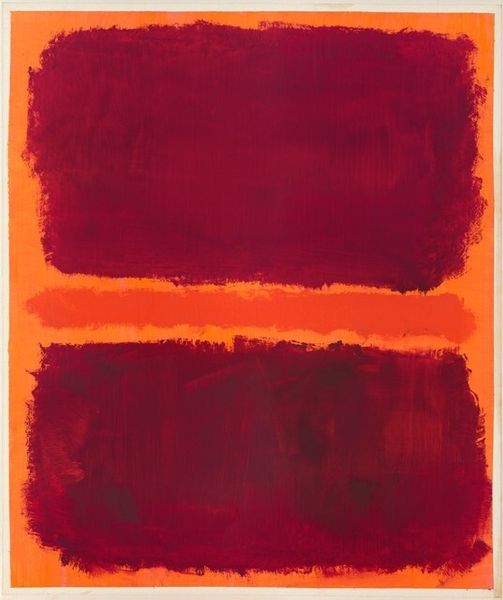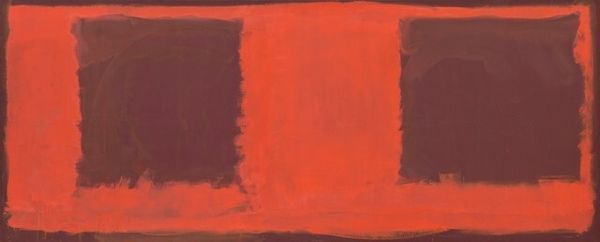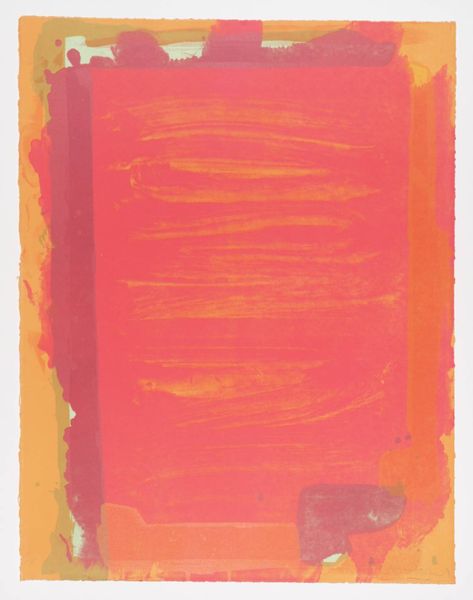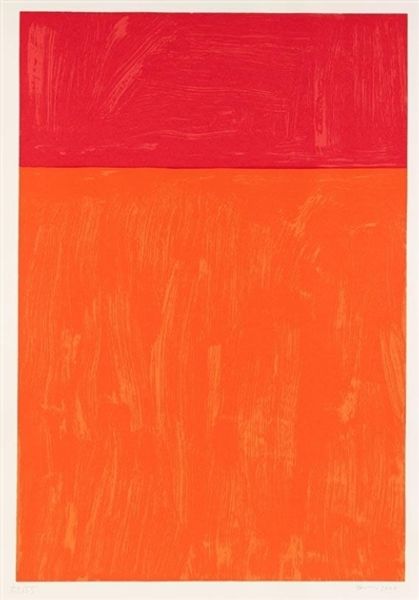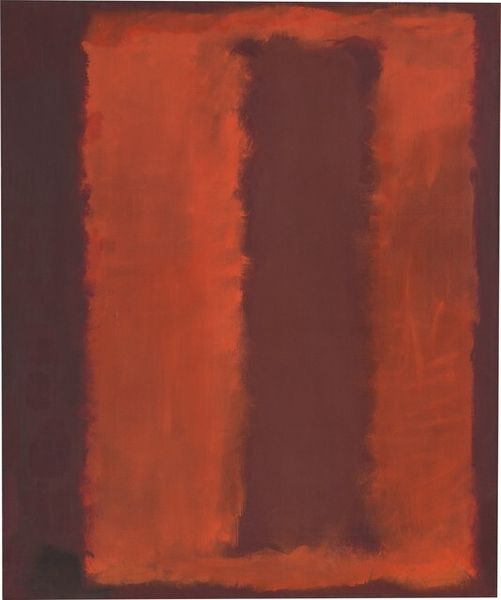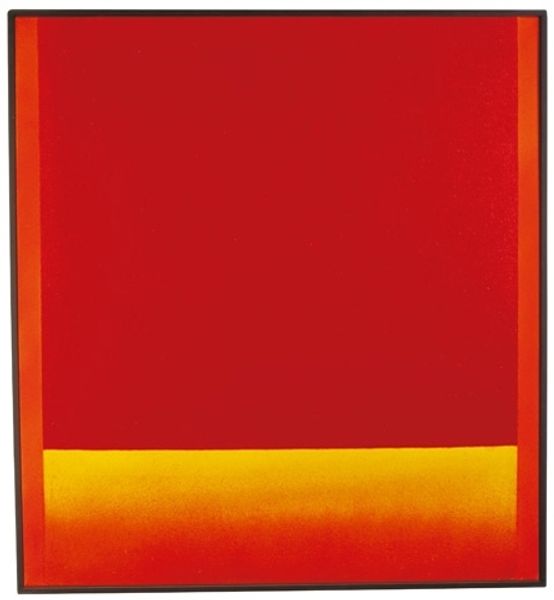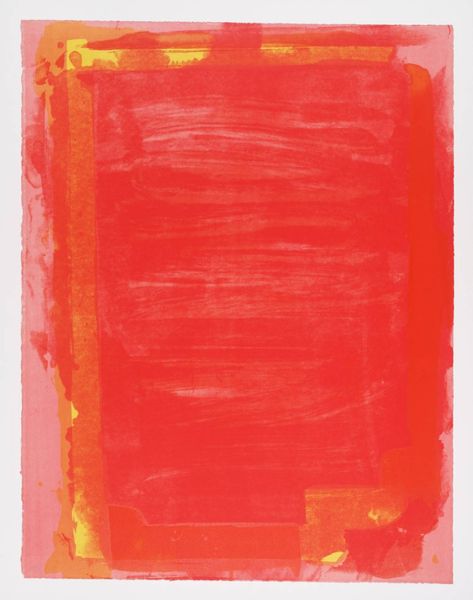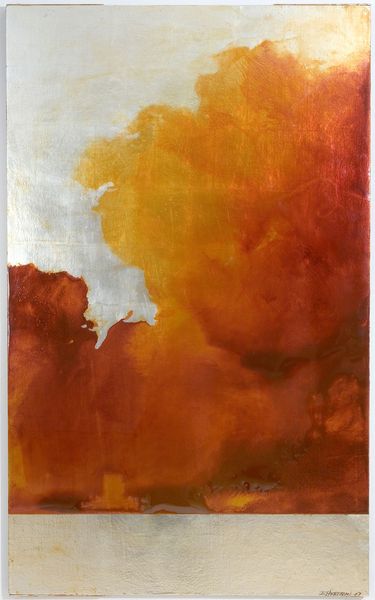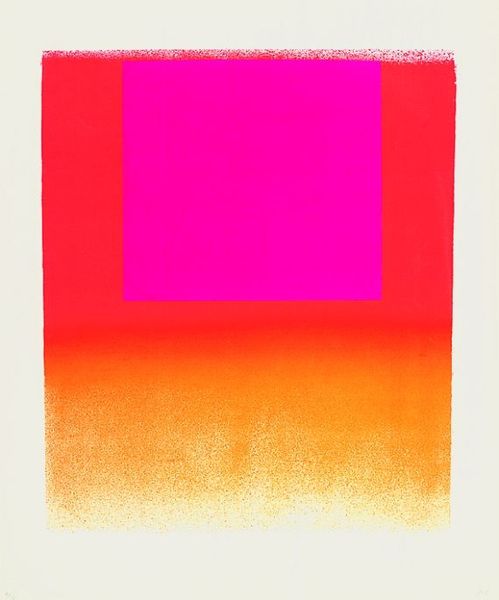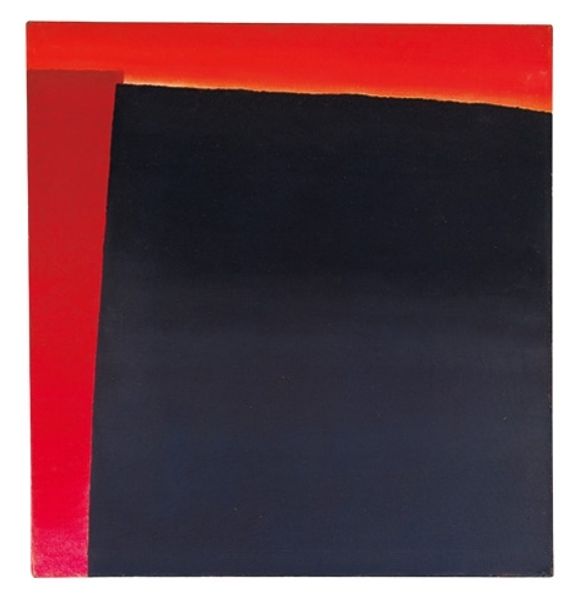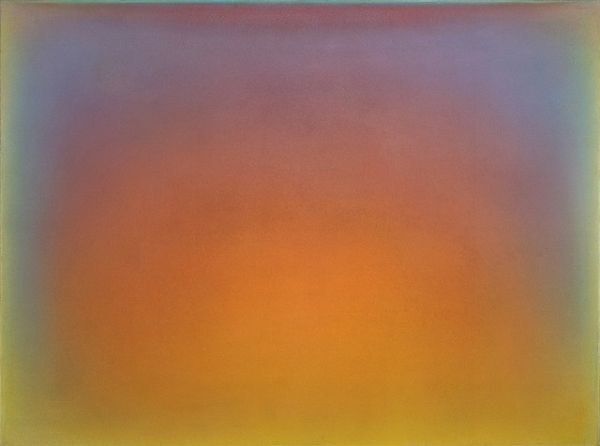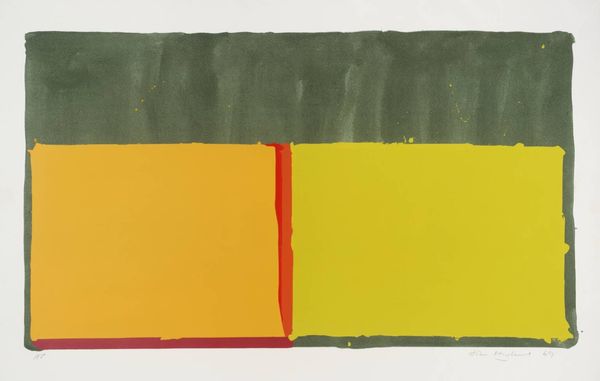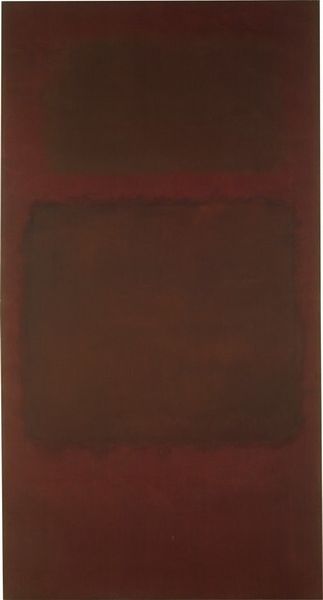
acrylic-paint
#
abstract-expressionism
#
abstract expressionism
#
non-objective-art
#
colour-field-painting
#
acrylic-paint
#
geometric
#
abstraction
#
abstract art
#
modernism
#
monochrome
Copyright: Rupprecht Geiger,Fair Use
Editor: This is Rupprecht Geiger's "318/61," made in 1961 using acrylic paint. The monochrome gradient feels both soothing and intense, like a sunset or a burning flame. What sociopolitical contexts might have influenced Geiger’s intense use of color and form at this time? Curator: Excellent observation. The postwar period saw artists grappling with ways to represent realities altered by war. Geiger's colour field painting can be seen as a radical exploration of sensory experience, cutting through established forms. This focus on colour as a primary subject is deeply connected to social upheavals in gender and sexual norms, mirroring society's broader shift away from traditional structures and embracing a fluidity of experience. Consider, for example, how this work, devoid of recognizable imagery, allows viewers to project their own narratives onto it. How might viewers have experienced such an intensely personal work during the cold war, when society encouraged conformity? Editor: That's fascinating. I hadn't thought about the viewer's role in interpreting this purely abstract work. The abstraction in this work becomes a sort of projective space, like a mirror? Curator: Precisely. In this view, the colour stops being simply aesthetic and begins to signal new modes of individual agency within the socio-political framework. What feelings arise for you from that lens? Editor: It feels more liberating, almost rebellious, like the colour refuses to be contained by older conventions, resonating with struggles of identity during that time. It’s definitely made me rethink what abstract art can communicate about society. Curator: Indeed. By focusing on direct experience and emotion, artists like Geiger provided alternatives to the narratives being shaped by Cold War rhetoric. It offers possibilities for resistance beyond language.
Comments
No comments
Be the first to comment and join the conversation on the ultimate creative platform.
